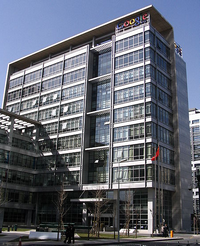As soon as Google publicly announced on Jan. 12 that it would no longer self-censor its search engine results for Chinese users, observers debated why the company had taken such a surprising decision. Proposed explanations included recognition that Google's presence in China has not encouraged greater media freedoms, irritation at yet another massive hacking effort by Chinese-based computers, a lack of commercial success in the large but highly competitive Chinese market, and fears about undermining faith in the security of its emerging cloud-computing networks. Now evidence has arisen about why Google executives were so alarmed: The company experienced the nightmare of a double Trojan horse attack, with at least one of its local Chinese employees opening the company's firewalls to allow virtual Trojan horses to penetrate its internal network.
Yesterday, Reuters reported that Google suspected one or more of its Chinese-based employees of abetting last month's cyber attacks against the company. The malicious software (malware) used against Google was a Trojan horse program. Widespread on the Internet, these programs allow outside computers to gain access to an internal computer or network. What made this particular malware program, Hydraq, unusual was that it knew precisely what data to attack and where to find it. Although Google representatives declined to comment on their ongoing investigation or business operations, local Chinese media have reported that since the Jan. 12 announcement, Google has denied some of its Chinese employees access to the company's internal networks while transferring or putting on leave personnel in Google's China office.
International human rights organizations such as Reporters Without Borders and Amnesty International applauded Google's decision to discontinue its self-censorship policy. Yahoo Inc., which has also been attacked for collaborating with China's Internet censors, expressed solidarity with its rival, while other companies soon acknowledged coming under attack from China-based computers.

